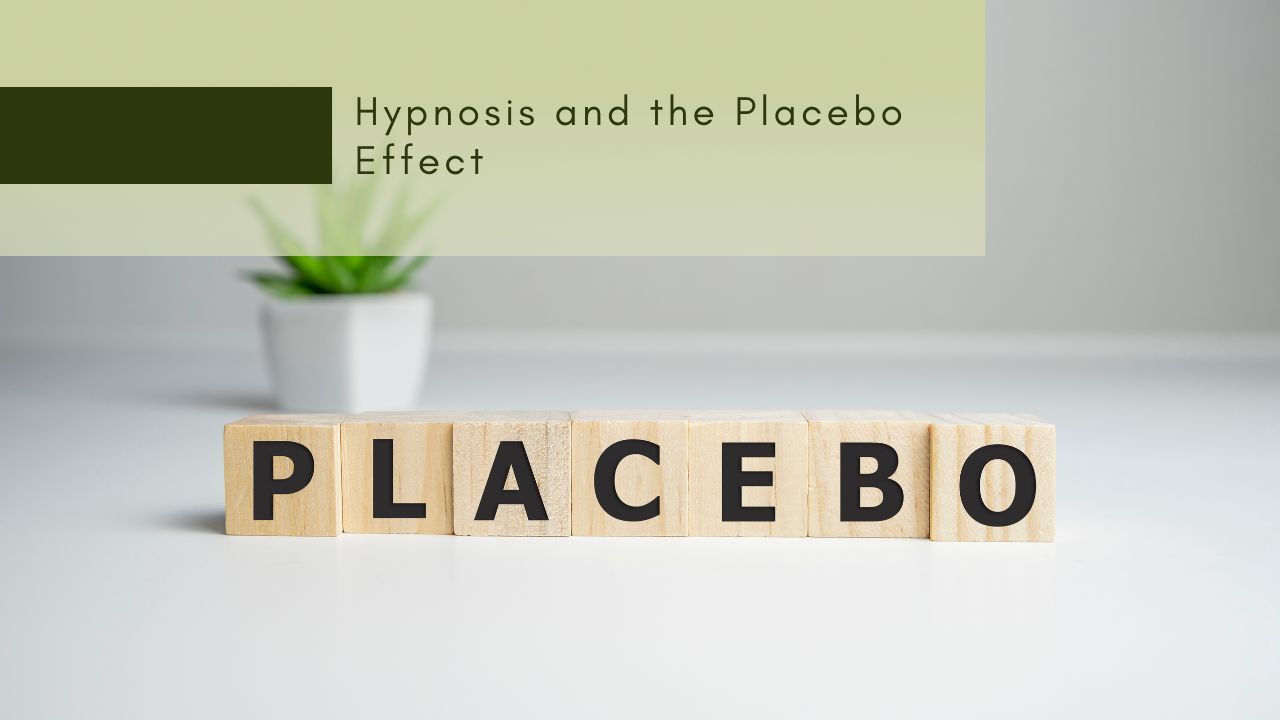In the past, people were mainly focused on taking medicines for treating many health conditions. Now things are changing, and a lot of new approaches to health are emerging. A key goal here is to obtain maximum benefits from various health conditions without having any side effects on the patient’s body that usually come along with taking medicine.
Alongside various modern methods, hypnotherapy is gaining a lot of popularity these days. So, here we will be discussing all you need to know about hypnotherapy.
What is Hypnotherapy?
As different people have differing conditions or circumstances, hypnotherapy is a type of therapy that uses hypnosis, which can help with a wide range of conditions or symptoms. Hypnotherapy or hypnosis are often used as part of a plan for, or holistic approach to different types of anxiety and phobias. In addition to these conditions which people often associate with the mind, hypnosis also demonstrates success with helping the following:
· Pain management, and much more.
When a client undertakes hypnotherapy, they are introduced to a hypnotic state which enables a certain detachment from the likes of the external, everyday (and often fast-paced) life. They tend to focus in internally, often with deep breathing along with both mental and muscle relaxation, as per the guidance of their Hypnotherapist. Although this therapy is a technique that was introduced centuries ago, it has gained momentum and greater recognition as a highly effective method, as a result of proven research and scientific credibility. Hypnosis is about accessing the client’s subconscious mind for their own benefit. This is the part of their mind which is open to suggestion.
Hypnotherapy is often described as safe, natural and effective. In fact, it is known to have a 93% success rate with significantly less sessions than both behavioral and psychotherapy, according to research studies. So, if you are worrying about whether it works for you, it seems the odds are in your favour. It is also becoming increasingly recognised in medical fields, as well as being utilized by some medical professionals. For example, it has been acknowledged by a well-respected Auckland Gastroenterologist as an option to address IBS. Hypnosis is also used in Psychology.
Livewell Hypnotherapy says that one of the most common questions they get asked is how many sessions does a person need? For best and long-lasting results, Livewell say between three and five consultations on average are recommended. However, this does not mean that some people will not require either less or perhaps for some, more. Everybody’s circumstances are different and nobody should be put into one box. That said, Livewell Hypnotherapy know it is possible for one to be completely cured of a phobia after one consultation because they have experienced this level of success with a client. There can be many factors at play. For example, how committed is that person to overcome a problem of habit; enough to listen to their personalised audio recording that they take away with them on a regular basis (at least initially)?
So, why the bad rep?
If you feel skeptical or wonder where on earth the ‘bad rep’ for hypnosis has come from, here it is. Unfortunately, stage hypnotists and Hollywood movies have contributed to unfavourable discourses around hypnotism – all for the sake of entertainment. As Livewell Hypnotherapy in Auckland points out, they have created an illusion that hypnotists have special powers to have complete control of their clients. However, this is completely false. If a person is not agreeable to a suggestion made during hypnosis, and/or they truly do not want to do something, then it simply won’t work. When you hear Annemieke Van Dam, Founder and Hypnotherapist of Livewell Hypnotherapy in South Auckland, talking about hypnosis in general conversation, you will often hear her say that it does not work for a person who does not want to change for their own reasons. So, for example, if a partner wants their spouse to quit smoking, but deep down the person doesn’t actually want to stop, then hypnosis will not work. For more information on common myths about hypnosis, see Livewell Hypnotherapy’s myths about hypnotherapy page.
What are some uses of hypnotherapy?
While hypnosis techniques can make the client feel a complete or partial disconnection from their typical external world, one may wonder, or have heard about more specific uses for hypnotherapy. We mentioned some of the uses above, but the list is very extensive, and here are some of the applications of hypnotherapy:
· Chronic pain conditions or pain management
· Sports or athletes – have you ever heard of Tiger Woods?
· Nausea and vomiting, which are related to chemotherapy
· Skin issues like warts and psoriasis
· Memory loss and dementia symptoms
· Improve sleep or resolve sleeping problems
· Increase self-esteem and/or confidence
· Stress and/or IBS (irritable bowel syndrome) symptoms
· Pain during childbirth), surgery, or dental procedures
· Vaping (or the new smoking)
· ADHD symptoms
· Enhanced or increased focus
In addition, services from hypnotherapists can also be very effective for things like depression, PTSD, and even eating disorders. Whilst Hypnotherapy shouldn’t be mistaken for curing actual or all medical illnesses, it can be viewed as a valuable asset in many cases, to address or reduce a wide range of symptoms and enhance one’s life and wellbeing. It is important to note that some hypnotherapists specialise in certain areas, and may only offer their services for specific problems or in several areas.
The Amazing Benefits of Hypnotherapy
When you participate in hypnosis, you will likely feel like never before. This is a unique and relaxing experience for most people. Those who try hypnosis for the first time are often pleasantly surprised. However, the average person experiences a hypnotic state fairly regularly; they just may not know it. For example, if you have ever had that ‘autopilot’ feeling of driving to work, and suddenly not really remembering how you got there, or not remembering driving for the last 10 minutes for example, this is an example of hypnosis. Hypnotherapy comes along with many benefits, of which some (in addition to what has been mentioned above) are:
1. Your hypnotherapist guides a deep level of focus
One great benefit is that this treatment makes you focused. In other types of therapy or general medical treatments, you would not likely have this. There are a lot of distractions when you are connected to the external world. Things like kids, animals, external noises, TV, traffic, work, or any other distracting noise can make you lose focus. But those undertaking hypnotherapy tend to not be subjected to such distractions.
2. Deep relaxation sensations
Hypnotherapists generally work with one to reprogramme their brain or way of thinking. Or, to put it better, to create new pathways of thinking, which overcome pathways that do not benefit or serve one well. There are different parts of the mind, and when you participate in hypnotherapy, your conscious mind is less present. The hypnotherapist’s guidance allows the unconscious mind to focus on certain actions or suggestions that benefit them.
As the unconscious mind is not connected to external experiences, the level of relaxation is unmatched. In this way, you become calmer, so the hypnotherapy becomes a lot more effective.
3. Increased self-awareness.
Another amazing benefit of this treatment is an increase in self-awareness. With the help of hypnotherapy, people often become more aware of their bodies. Although this level of awareness differs from person to person, when there is maximum awareness, the person can be talking during the hypnosis sessions. Other than that, recalling everything that happened during the session is quite common.
To ensure that the person being treated gets the best time for relaxing their mind, they are often given messages that bring calmness. These messages are usually in a series, and communicate that they are safe from the issue. In this way, the chances of getting a panic reaction to the process of hypnosis are prevented.
Different techniques are used for hypnotherapy
Hypnotherapy techniques often vary for different types of problems. The reason here is that different minds or people are dealing with different situations, so it is best to use an approach most relevant to their experiences. There are various techniques such as NLP (neuro-linguistic programming), and we will elaborate on some of them here:
· Relaxation
Relaxation is the most common technique where the hypnotherapist will ask you to visualize yourself in a peaceful and relaxed state. It is the best approach when it comes to fear, anxiety, and depression.
· Coping skills
This is also a technique that is used to help with anxiety disorders and fears. Here, the hypnotherapist works by coping with some cognitive-behavioral skills to help you confront an issue.
· Suggestion
The hypnotherapist may use suggestions leveraging from NLP for their approach to the case. They ask you to make some behavioural changes that may help you to get through unwanted or challenging situations.
· Exploration of experience
Some hypnotherapists use your experience in relation to their NLP technique, to help you overcome trauma, barriers or unwanted habits for example.
Final Remarks:
Whilst it was not necessarily getting a lot of attention in earlier times, hypnotherapy has gained much recognition and traction over the past few decades. Perhaps shifting from discourses around the likes of lotions and potions, to having an extremely high success rate and scientifically proven benefits. Many people are now resolving barriers or unwanted habits, overcoming phobias or weight loss hurdles, or effectively managing pain, stress or anxiety symptoms. Hypnotherapy for weight loss has also helped many people avoid having surgery. This discussion has covered what hypnotherapy (or hypnosis) is, its workings, and its benefits. I hope you have found it an interesting read.
It has been a pleasure to write for Livewell Hypnotherapy’s blog. What makes them unique as a practice is their beautiful rural and relaxing location. It is also very private, which I’m sure brings a great level of reassurance to many clients. In addition, Livewell have an impeccable focus on their clients’ journeys to wellbeing. They invest extra time upfront for thorough assessment, and believe in supporting their client’s journeys, enabling and empowering them to lead the way and feel accomplished in their own achievements. A dedicated and focused Auckland Hypnotherapist; Annemieke is within reach of many South Auckland and nearby rural locations, such as Manukau, Takanini, Manurewa, Papakura, Karaka, Ramarama, Hunua, Bombay, Pukekohe, Franklin area and surrounding suburbs; as well as North Waikato and/or areas such as Pokeno, Te Kauwhata, etc.
Written by Shoaib Ashraf and Karyn Van Dam
Edited by Karyn Van Dam




